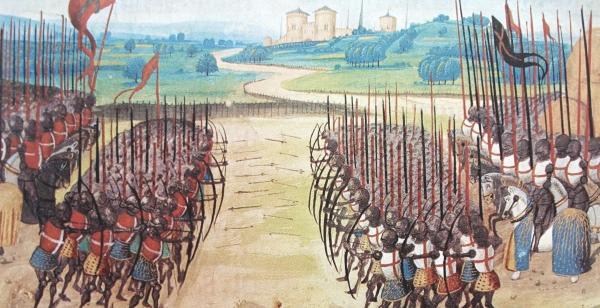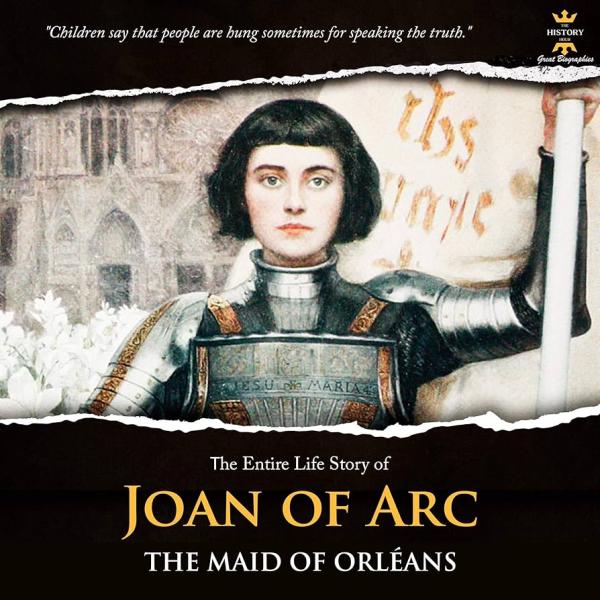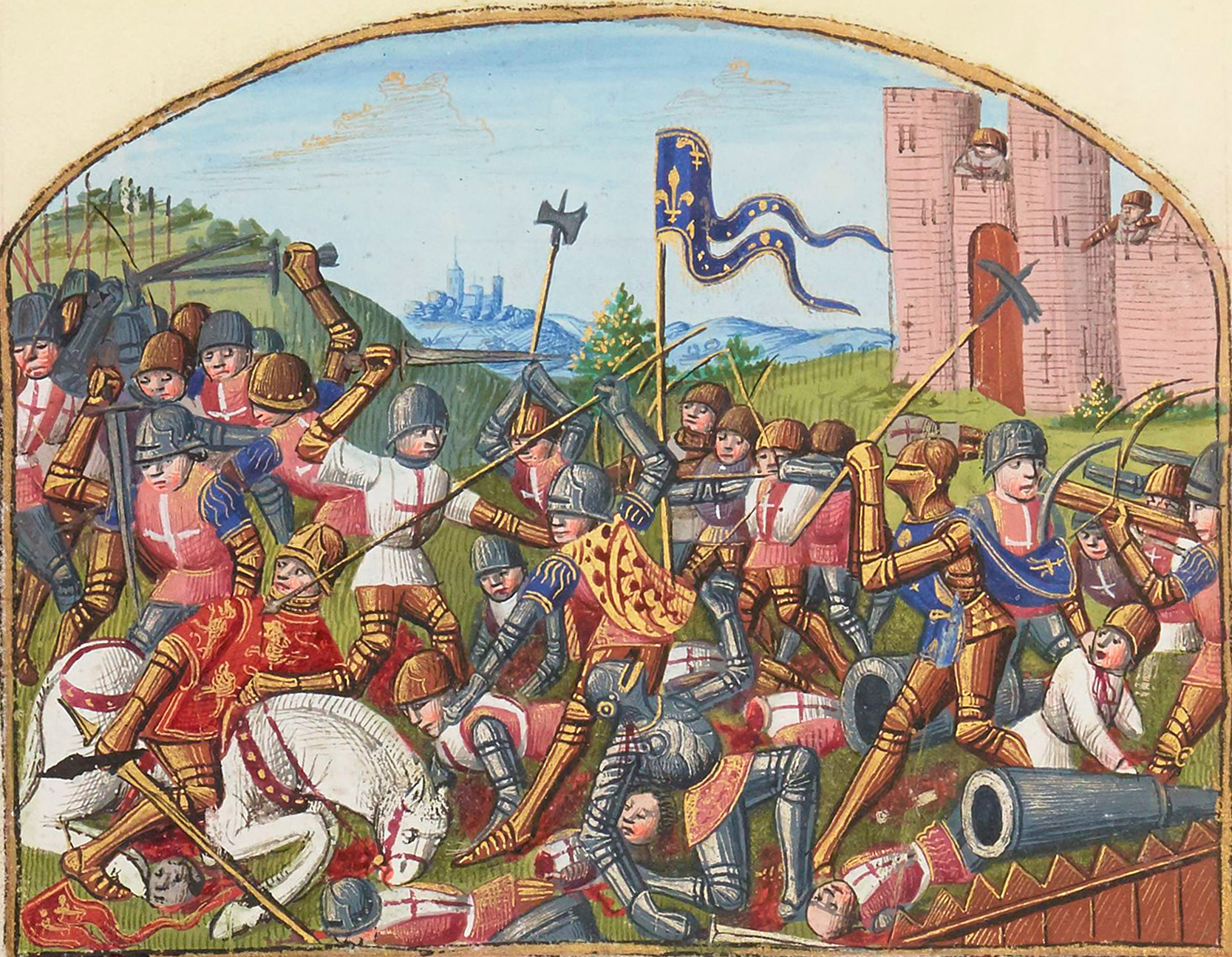France's Hundred Years' War | |||
 1,568 1,568  0 0  0 0 | |||
| The Hundred Years' War (1337-1453) was a series of conflicts fought between England and France, primarily over the succession to the French throne and control of English territories in France. While not fought continuously for a full century, the war saw periods of intense fighting punctuated by truces, and involved shifting alliances and significant military innovations like the longbow. Ultimately, England lost almost all its continental possessions, with the exception of Calais, solidifying French national identity and significantly altering the political landscape of both nations.
Origins of Conflict (1337-1340s)The roots of the Hundred Years' War can be traced back to a tangled web of dynastic disputes, territorial ambitions, and economic rivalries between England and France. The conflict was ignited by the conflicting claims to the French throne by Edward III of England and Philip VI of France. Edward III's assertion of his right to the French crown marked the beginning of hostilities.
Key Battles and Turning Points (1340s-1410s)The Hundred Years' War witnessed a series of pivotal battles that ebbed and flowed the tide of fortune for both sides. The Battle of Crécy in 1346 saw a decisive English victory, followed by the Siege of Calais. The tide turned in favor of France with the ascension of Charles VII and the heroic intervention of Joan of Arc, culminating in the lifting of the Siege of Orléans in 1429 and the stunning victory at the Battle of Patay.
Joan of Arc: The Maid of Orléans (1410s)One of the most legendary figures to emerge from the Hundred Years' War is Joan of Arc. Inspired by divine visions, this courageous young woman played a pivotal role in rallying French forces and turning the tide of the war in favor of France. Her leadership and military prowess were instrumental in breaking the English siege of Orléans and securing the coronation of Charles VII.
Legacy and Consequences (1420s-1453)The Hundred Years' War concluded with the decisive victory of the French at the Battle of Castillon in 1453. While the war formally ended, its repercussions reverberated throughout Europe for centuries to come, reshaping political alliances, military strategies, and national identities. The war left a profound legacy, influencing the development of warfare, diplomacy, and nationalism in the subsequent centuries.
Remembering the Hundred Years' WarToday, the Hundred Years' War serves as a poignant reminder of the enduring consequences of conflict and the resilience of the human spirit. Its legacy is embedded in the cultural heritage of both France and England, immortalized in literature, art, and historical scholarship.
ConclusionThe Hundred Years' War remains a testament to the complexities of medieval politics, the horrors of warfare, and the indomitable spirit of those who fought and suffered through its trials. By unraveling the layers of this epic saga, we gain insight into the enduring legacy of one of history's most defining conflicts. Tags: European History France Historical Saga Hundred Years War Jeanne d'Arc Joan of Arc Medieval History Warfare History Zandark | |||
| |||
| | |||
|
 3350
3350 



